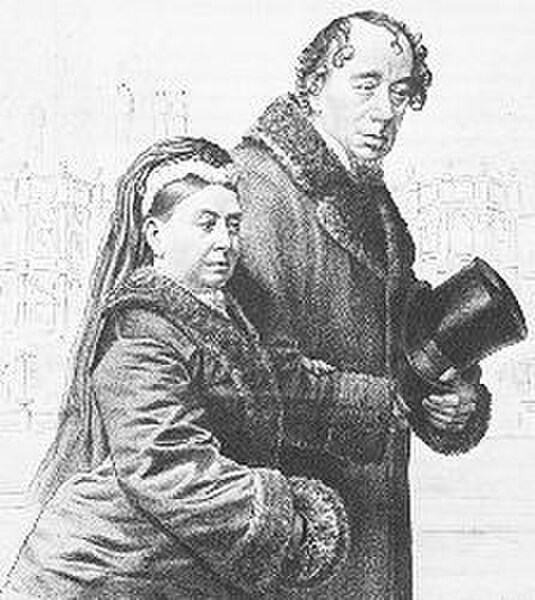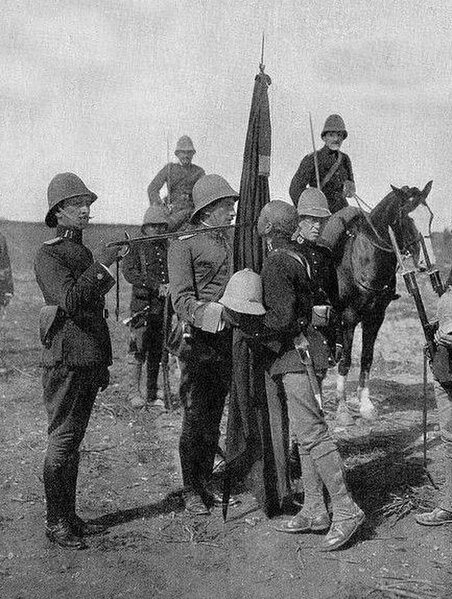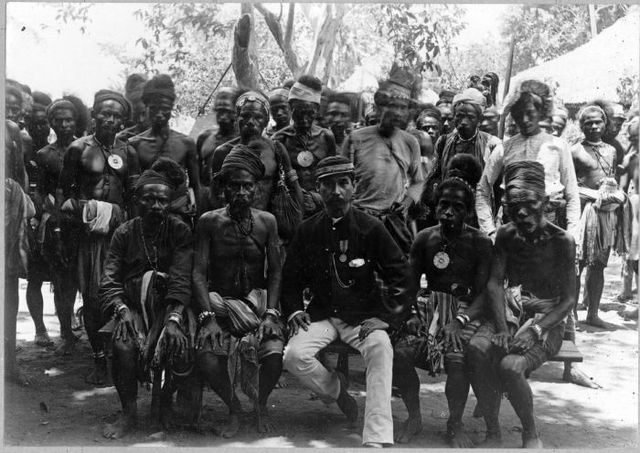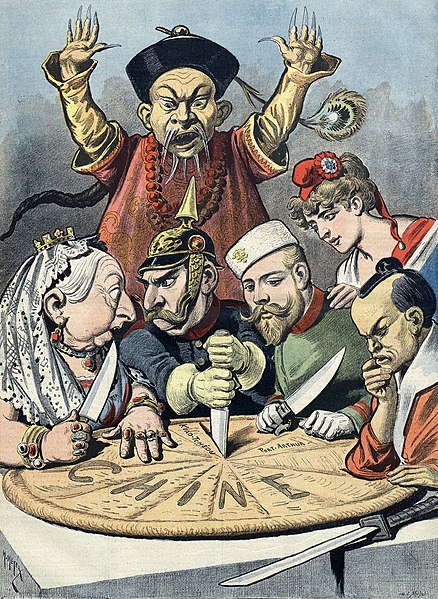Western imperialism in Asia
The influence and imperialism of Western Europe and associated states peaked in Asian territories from the colonial period beginning in the 16th century and substantially reducing with 20th century decolonization. It originated in the 15th-century search for trade routes to the Indian subcontinent and Southeast Asia that led directly to the Age of Discovery, and additionally the introduction of early modern warfare into what Europeans first called the East Indies and later the Far East. By the early 16th century, the Age of Sail greatly expanded Western European influence and development of the spice trade under colonialism. European-style colonial empires and imperialism operated in Asia throughout six centuries of colonialism, formally ending with the independence of the Portuguese Empire's last colony Macau in 1999. The empires introduced Western concepts of nation and the multinational state. This article attempts to outline the consequent development of the Western concept of the nation state.

Illustration of Marco Polo's arrival in a Chinese city
Dutch settlement in the East Indies. Batavia (now Jakarta), Java, c. 1665.
Colombo, Dutch Ceylon, based on an engraving of circa 1680
The Dutch Governor-General, highest authority in the colony and the Sultan of Jogjakarta.
In historical contexts, New Imperialism characterizes a period of colonial expansion by European powers, the United States, and Japan during the late 19th and early 20th centuries. The period featured an unprecedented pursuit of overseas territorial acquisitions. At the time, states focused on building their empires with new technological advances and developments, expanding their territory through conquest, and exploiting the resources of the subjugated countries. During the era of New Imperialism, the European powers individually conquered almost all of Africa and parts of Asia. The new wave of imperialism reflected ongoing rivalries among the great powers, the economic desire for new resources and markets, and a "civilizing mission" ethos. Many of the colonies established during this era gained independence during the era of decolonization that followed World War II.
British Prime Minister Benjamin Disraeli and Queen Victoria
Indigenous African soldier pledging alliance to the Spanish flag. European armies would regularly enlist natives to garrison their own land.
Colonial government official J. Rozet, an Indo Eurasian, in negotiation with tribal chiefs (Roti Islanders), Pariti, Timor, 1896.
A shocked mandarin in official robes in the back, with Queen Victoria (Britain),Wilhelm II (Germany), Nicholas II (Russia), Marianne (France), and a samurai (Japan) discussing how to cut up Chine ("China" in French).








